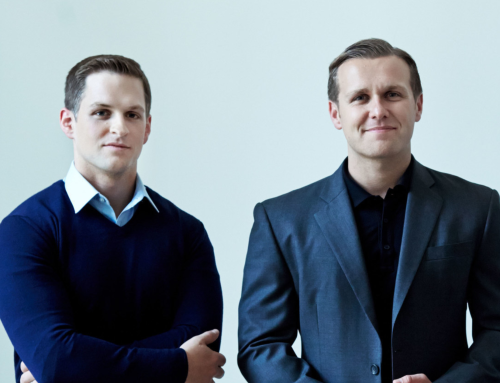Dedication = Daily Habits
The real story in an Olympic game isn’t the triple-axel that landed the gold— that triple-axel marks precision and technical prowess, yes, but the real story is the years of intense training that led to landing it. When we see these incredible human beings pull off such extraordinary feats with herculean strength — we immediately wonder — “how?” So the real story is the years of unwavering dedication that any Olympian has made to lead up to that very moment of success.
How do we measure dedication? It’s the daily habits that we ruthlessly hold ourselves to in pursuit of a great vision. We entrepreneurs can learn from the daily habits of Olympic athletes that ultimately amount to a gold medal win. When you think about it, entrepreneurs aren’t so unlike Olympic athletes — they are usually solo mavericks in their circles dedicating themselves to a largely isolating task of achieving a lofty goal, they trailblaze on the edge of human experience, constantly pushing the envelope of what’s possible for the rest of humanity and usually end up setting records in the process.
1. Is Passion Present? Feed Your Passion
This is something that might seem obvious but there are plenty of capable entrepreneurs who struggle and they aren’t sure why. It might stem from not being 100% passionately invested in the concept. Their idea or business model might be logical and great, but just because an idea is a smart one — doesn’t mean that one’s passion is behind it. Maybe they’re retrofitting an idea or plan onto their drive to be independent. Or it might be other outside factors that are driving them to pursue the business instead of their own internal passion igniting their dedication.
Because it takes all of the force of an individual’s passion to get through the toughest challenges of growing a business — check in with yourself and make sure that the passion is present. That is physically, mentally, emotionally, check to make sure that you have the stamina and genuine love for the problem at hand to justify the dedication. This is absolutely true for Olympic athletes and their sports, it takes a true love for the sport to justify regularly waking up at 4:15 am to begin training.
2. Conquer The Day Before It Starts
Yes, that’s right. Most Olympians are up at 4:15 AM to make the most of their rigorous training hours. Meanwhile, studies have shown that 90% of executives wake up before 6 am on weekdays, and nearly 50% of self-made millionaires wake up at least three hours before their workday actually begins. Richard Branson is also a fan: “By rising early, I’m able to do some exercise and spend time with my family, which puts me in a great mind frame before getting down to business,” he said in a blog post. If this seems painful to you, try first waking up at 6 am, then 5 am, and so forth. The huge upside is tackling the majority of your day’s work without distraction, and all well before most people are having their cup of coffee. That sense of accomplishment so early in the morning sets the tone for the rest of the day.
And you don’t have to get up to do work right away. Many moguls, such as Oprah are up before 6 am, but her first focus is her spiritual well being. She devotes a few minutes to “offering herself to something greater than herself” in a dedicated meditation room. It doesn’t have to be meditation, for instance, Jeff Bezos avoids early meetings so he can enjoy breakfast with his family. Bill Gates prefers to walk on the treadmill for an hour while watching educational videos.
The best way is going to be your way, so think about what physically or emotionally helps you set the tone for the work ahead, and do that as early as possible.
3. Record, Assess, Plan, Then Improve
Map your milestones, then record and assess progress. Holding yourself accountable for your results is humbling but also the key to excellence in any field. Instead of letting your work fade into a blur each day, take a moment to review and assess your progress — personally and professionally — ideally with metrics to support objectivity in the process. And if you need help in this, all Olympians and most successful entrepreneurs, C-level executives, and millionaires employ a life coach that helps them sort their inhibitions and strengths. How is a coach different than a mentor or a teacher? The coach is more proactive than a mentor or advisor — you check in with the coach frequently, like a compass, and they hold a mirror to you and help you constructively see yourself with true clarity so that you can continue with detailed focus without losing sight of the larger vision. Coaches can cost anything from $300 to $30,000 a month — but they’re worth it according to successful leaders who swear by them.
4. Have A Solid Community That Can Rally Behind You
You might see just a single person with a medal on the podium, but in fact, for each Olympian, there’s a “village” behind them — a community of family and friends who’ve supported them through highs, lows, every injury, and come back — often since a very early age. For entrepreneurs, the journey can feel lonely and isolating, since not everyone understands the vision, or the potential rewards. So it’s key to find a community that can rally behind you through the ups and downs and be a support network through it all.
Not everyone understands the startup journey — or its siren’s call to the entrepreneur — and if your family or friend group don’t entirely understand — that’s ok. But do find a community who can support you now. There are so many groups online on Facebook, Reddit, and even our own community here at the NASDAQ Entrepreneurial Center — we have multiple frameworks and programs, such as the Milestone Maker Program, a no-equity-cost option for entrepreneurs looking to accelerate their business. (applications are due March 30th 2018).
5. Get Quality Rest
Michael Phelps has a pressurized sleeping chamber — but maybe you don’t need to go that far. Sleeping in a cooler room and investing in small things to create just the right ambient conditions for deep sleep is key, especially if you’re getting up before 6 am. If you aren’t already, try using a sleep tracking app, or listen to binaural beats that can aid you in achieving a deeper state of REM.
What habits do you use to keep you on the track for success? Share with us @nasdaqcenter on twitter or on Facebook.




Invite a Friend
Close